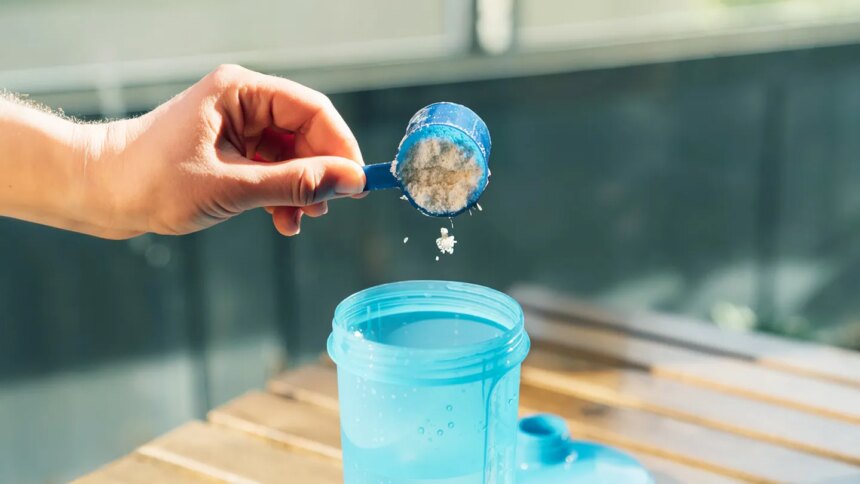Whether you’re building muscle or breaking a sweat, incorporating workout supplements into your regimen can sometimes feel like navigating uncharted territory. But did you know that nearly half of all gym-goers surveyed in a 2020 Portuguese study reported using some form of dietary supplement? This particular research highlighted creatine and protein powders among the most popular choices.
Dr. Nicole Avena, an assistant professor of neuroscience at Mount Sinai and visiting health psychology professor at Princeton University, explains that while supplements aim to enhance performance or address specific needs like joint pain, their primary purpose is clear: they are meant to dietary supplement, not replace the foundational nutrients from a balanced whole-food diet.
“Your goal should be to get what you need for optimal health through your normal diet,” advises Albert Matheny, RD, CSCS. “But supplements can effectively address specific nutrient deficiencies.” Primary care providers often recommend blood tests if there’s cause to believe one might have such nutritional gaps.
When considering supplements, it’s crucial to be selective. The U.S. Food and Drug Administration does not regulate them as strictly as prescription drugs. Look for brands with established reputations and third-party testing from organizations like USP or NSF International. Always consult your doctor before starting a supplement regimen.
Furthermore, approach marketing claims with healthy skepticism. As Dr. Avena points out, “There’s definitely a place for supplements, but people need to be mindful of making sure they’re doing their homework and reading the labels.” Despite rigorous research on some supplements, findings are not always conclusive or universally applicable.
Here’s what you should know about seven popular workout supplements:
Creatine
Creatine is one of the most recommended sports supplements by experts. Naturally occurring in muscle cells and the brain, it helps fuel high-intensity exercises like sprinting or heavy lifting. Studies suggest creatine can significantly boost leg press strength and overall body power during resistance training.
Leucine
This branched-chain amino acid (BCAA) is vital for muscle repair and growth – a process it activates specifically within muscles. While naturally found in protein-rich foods, leucine supplements are often used by athletes to enhance performance or combat fatigue during exercise.
Protein Powder
The go-to supplement for maximizing muscle repair, especially after intense workouts. Athletes pushing their physical limits might find it useful when dietary protein isn’t enough. However, experts generally recommend getting protein from whole foods whenever possible.
Beta-Hydroxy Beta-Methylbutyrate (HMB)
Though technically a metabolite produced by the body, HMB supplements aim to slow exercise-induced muscle damage and promote recovery or strength gains in some individuals. While research supports its potential benefits for reducing post-exercise soreness, consensus is lacking on its universal effectiveness.
Caffeine
Perhaps one of the most recognizable workout aids – yes, that cup of coffee might actually help your performance! Caffeine can enhance endurance and power output when taken in controlled doses. However, potential risks include GI issues or even cardiac distress at very high doses.
Beta-Alanine
This amino acid supplement helps buffer lactic acid buildup during exercise, potentially allowing for longer work capacity and faster recovery from fatigue-causing muscle exhaustion. Beta-alanine can effectively combat the feeling of heaviness and fatigue in muscles during prolonged exertion or high-intensity bursts.
Sodium Bicarbonate
Baking soda (sodium bicarbonate) is another supplement contender that fights lactic acid buildup, which contributes to muscle fatigue. While it might slightly improve performance in certain short-term activities like sprinting, its effectiveness varies greatly from person to person and can often cause significant GI upset.
The bottom line? Supplements can be valuable tools for enhancing your fitness journey, but they should not serve as a substitute for a balanced diet. Always prioritize whole foods first, incorporate supplements selectively based on evidence-based knowledge, remain skeptical of exaggerated claims, choose third-party tested products, and consult with healthcare professionals to ensure safety.




![Indian Spicy Potatoes and Broccoli [Vegan, Gluten-Free] – One Green Planet](https://top-100-recipes.com/wp-content/uploads/2025/06/Spicy-Potato-and-Broccoli-Medley-150x150.jpg)




